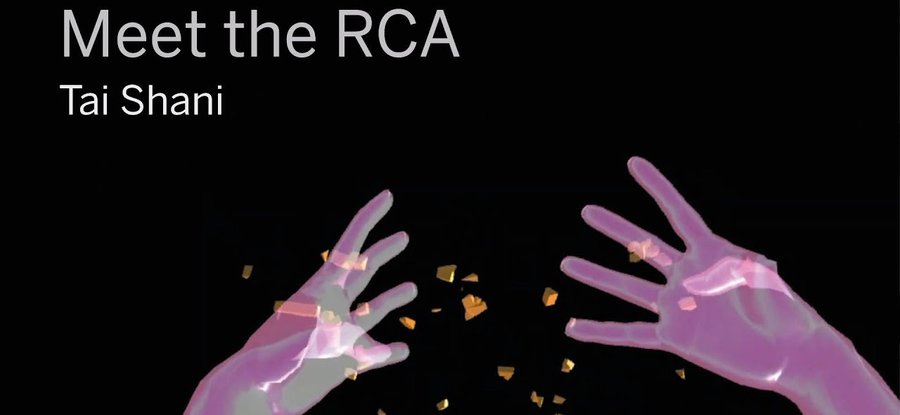Key details
Date
- 9 September 2020
Author
- RCA
Read time
- 2 minutes
The exploration and representation of feminine excess is a core focus of Tai Shani’s artistic practice. This includes her Turner Prize winning body of work DC: Semiramis, which has been presented in different variations at Glasgow International, The Tetley, Leeds, Nottingham Contemporary and the De Le Warr Pavilion, Bexhill-on-Sea.
“A cultural awareness, a political awareness...is very much at the core of how we teach.”
The installation, performance and film work combines historical texts with contemporary references to explore themes of feminism and otherness through a gothic, science-fiction lens.
‘The epic has always been something that I’ve been interested in’ Tai explained, as well as ‘science fiction, world making, how subjectivities are constructed, and the role of the feminine within subjectivities.’
Writing is often at the core of her work, which moves fluidly between different media.
‘The writing will build an affective image, then I try to pick out tones and interpret them into objects, installations, photographs, films – it depends really what feels right at the time, I don’t think about the medium

Dark Continent, Tai Shani 2019 installation view, Turner Prize 2019 at Turner Contemporary Photographer: David Levene
“Students come with a sense of what they want to do as artists, and its an incredible opportunity to give them tools to conserve their integrity.”
This approach influences Tai’s teaching on the Contemporary Art Practice programme, which she describes as very responsive and conversational, adding that ‘a cultural awareness, a political awareness [...] is very much at the core of how we teach.’
Work made on the programme is not determined by technology or material, rather it provides an environment where students explore their own positions on contemporary issues surrounding thinking about, making and displaying fine art.
In Tai’s words ‘students that come to do an MA at the Royal College of Art, come with a sense of what they want to do as artists, and it’s an incredible opportunity to give them tools to conserve their integrity.’

Dark Continent by Tai Shani
The discursive context that the programme creates has the potential to make a profound impact on the students.
As Tai summarises: ‘The conversations that they have, not just with staff but with each other, gives them a footing that then extends beyond being artists, it also makes you think critically about the world, it makes you think about how we relate to one another, which is really fundamental.’
